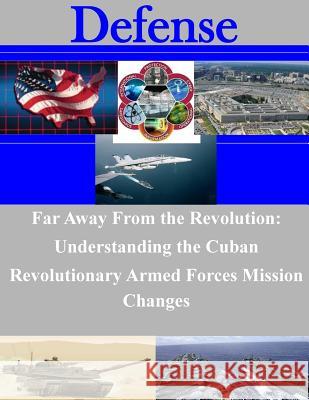Far Away From the Revolution: Understanding the Cuban Revolutionary Armed Forces Mission Changes » książka
Far Away From the Revolution: Understanding the Cuban Revolutionary Armed Forces Mission Changes
ISBN-13: 9781500911874 / Angielski / Miękka / 2014 / 64 str.
Far Away From the Revolution: Understanding the Cuban Revolutionary Armed Forces Mission Changes
ISBN-13: 9781500911874 / Angielski / Miękka / 2014 / 64 str.
(netto: 56,82 VAT: 5%)
Najniższa cena z 30 dni: 59,50
ok. 16-18 dni roboczych
Dostawa w 2026 r.
Darmowa dostawa!
Over five decades have passed since the triumph of Fidel Castro's guerrilla army in the revolution that removed Cuba's dictator Fulgencio Batista. Since then, the Cuban Revolutionary Armed Forces (Fuerzas Armadas Revolutionaries, FAR)-with roots in the revolutionary movement-has redefined its role and missions several times up to the current regime. This book explores how the FAR has adapted to mission changes from the end of the revolution to the post-Cold War period (1959-Present) while remaining loyal to the revolution. The FAR's commitment to the state and subordination to political leaders is particularly interesting now with its most recent mission shift into entrepreneurship. This book, finally, seeks to analyze the extent of political influence the FAR has exercised and explore potential linkages between shifts in political power and mission change. First, the thesis will chronologically explore the development and progression of the FAR as an institutional actor, paying particular attention to the militarization of the Cuban economy. Second, the implications of all these changes are placed in context by exploring the FAR's power dynamics with other political institutions. Lastly, it will assess the importance of the domestic dimension of the FAR and the contributions to the Cuban economy against the relevance of the Cuban Communist Party (PCC).
Zawartość książki może nie spełniać oczekiwań – reklamacje nie obejmują treści, która mogła nie być redakcyjnie ani merytorycznie opracowana.











